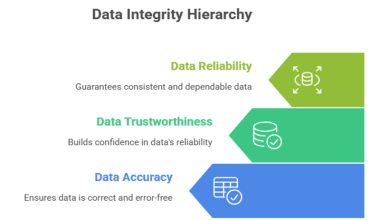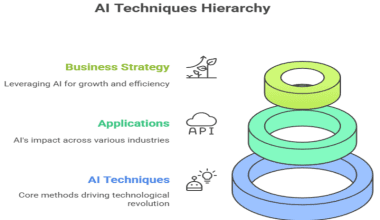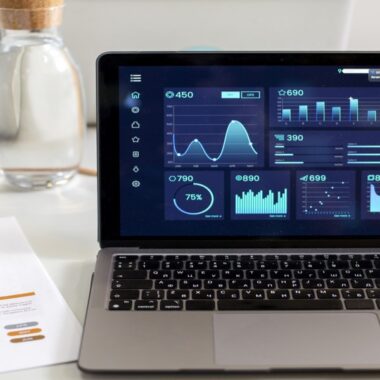Summary: Discover what a career in data analytics looks like in 2025. This guide covers major roles, core skills, industry demand, salary expectations, education paths, and certifications. Find step-by-step strategies on how to become a data analyst, including without prior experience, and see why this profession is future-proof and lucrative.
Introduction
Are you searching for a dynamic, future-proof career that sits at the heart of business innovation and decision-making? A career in data analytics could be your gateway to exciting opportunities, exceptional salaries, and significant professional growth.
Businesses, governments, and organizations are generating massive amounts of information every day. But data itself is only valuable if you know how to make sense of it. Enter the data analyst—a specialist who transforms raw numbers into actionable insights.
As demand for these roles explodes, a career in data analytics is increasingly popular for ambitious individuals seeking high-potential jobs, lucrative salaries, and the chance to make a real impact.
Key Takeaways
- Data analytics offers robust job growth and high earning potential through 2025.
- Entry is possible for beginners through courses, portfolios, and recognized certifications.
- Versatile roles exist in finance, healthcare, marketing, retail, and technology sectors.
- Core skills include SQL, Python, Excel, data visualization, and business communication.
- Continuous learning and upskilling are essential for long-term career advancement in analytics.
What is Data Analytics?
Data analytics is the science of examining raw data to draw conclusions, discover patterns, and support decision-making. Data analytics involves collecting, cleaning, processing, and visualizing large datasets to provide answers to complex questions and drive business strategy.
Key Processes in Data Analytics:
- Gathering data from multiple sources (sales, customer feedback, social media, IoT devices).
- Cleaning data to remove noise and errors.
- Analyzing the data—looking for data trends, patterns, and insights.
- Presenting findings through reports, dashboards, or presentations.
Businesses rely on data analysts to translate numbers into powerful stories. These stories inform everything from product launches to marketing campaigns and healthcare innovations.
Key Roles in Data Analytics

A career in data analytics opens doors to a variety of dynamic roles, each playing a pivotal part in extracting insights and driving business decisions. Here are the primary roles you’ll encounter in the field, whether you’re entering as a beginner or aiming for leadership:
Data Analyst
- Responsibilities: Collects, processes, and analyzes large datasets to reveal trends, patterns, and actionable insights. Prepares reports for stakeholders and builds dashboards to visualize findings.
- Typical Tools: Excel, SQL, Tableau, Power BI, Python.
2. Junior Data Analyst
- Responsibilities: Supports senior analysts through data cleaning, basic trend analysis, and routine reporting. Provides assistance in handling databases and conducting exploratory analysis.
- Typical Entry Point: Ideal for those starting their career in data analytics or transitioning from another field.
Business Intelligence (BI) Analyst
- Responsibilities: Specializes in designing, developing, and managing BI solutions, such as dashboards and performance metrics, to enable strategic data-driven decisions.
- Key Strengths: Strong understanding of business operations alongside technical data skills.
Operations/Data Operations Analyst
- Responsibilities: Focuses on optimizing business processes using operational data. Identifies inefficiencies, recommends improvements, and oversees implementation of data-driven solutions.
Marketing/Data Marketing Analyst
- Responsibilities: Analyzes marketing data, monitors campaign performance, segments target audiences, and supports marketing forecasts.
- Value: Helps organizations tailor their messaging and improve return on investment.
Financial/Data Financial Analyst
- Responsibilities: Interprets financial data to guide investment strategies, budget forecasting, and risk management. Creates financial models and prepares reports for management.
Data Scientist (Advanced/Progression Role)
- Responsibilities: Leverages advanced analytics, machine learning, and predictive models to solve complex business problems. Designs experiments, automates workflows, and develops custom data products.
- Career Path: Many experienced analysts grow into this role with upskilling.
Analytics Manager/Team Lead
- Responsibilities: Oversees a team of analysts or scientists, sets analytical strategies, manages project delivery, and collaborates with stakeholders to align business and analytics goals.
Industries Hiring Data Analysts in 2025
In 2025, the demand for data analysts is soaring across a broad array of sectors, reflecting the central role of data in driving efficiency, innovation, and strategic decisions. Here are the top industries hiring data analysts and the unique ways they leverage data insights:
Business Intelligence (BI)
Companies harness BI to convert big data into actionable insights, develop predictive models, and support timely business decisions. Data analysts here are critical for building dashboards and translating analytics into business growth.
Finance & Fintech
Finance was one of the earliest sectors to embrace analytics. Major employers—ranging from investment banks to fintech startups—use data for risk analysis, market trend prediction, fraud detection, and improved investment strategies. Data analysts may take on titles such as financial analyst or risk management analyst in this sector.
Healthcare
The healthcare industry, including hospitals, health tech startups, and pharmaceutical firms, relies on data analysts to organize and interpret data from patient records, billing, wearable devices, and telemedicine platforms. Analytics improves patient care, streamlines processes, helps reduce costs, and enhances accessibility.
Digital Marketing
With vast amounts of data generated online, marketing agencies and brands need data analysts to interpret consumer behavior, evaluate campaign effectiveness, and personalize recommendations. Data enables product innovation, smarter targeting, and improved customer engagement.
Cybersecurity
Cybersecurity organizations leverage data analysts to analyze threats, detect anomalies, and support real-time defense strategies. Their work is crucial for identifying and mitigating data breaches and cyber risks.
Educational Path and Certifications to Become a Data Analyst
To pursue a career in data analytics, your educational path and certifications are key factors that will set you apart in a competitive job market. Here’s a comprehensive guide tailored for aspiring data analysts in 2025:
1. Formal Education
- Bachelor’s Degree: Most entry-level data analyst positions require at least a bachelor’s degree. Preferred fields include Computer Science, Statistics, Mathematics, Data Analytics, Economics, Engineering, or other STEM disciplines. Some employers accept related degrees such as business administration, general sciences, or even fields like architecture, provided you have relevant skills.
- Master’s Degree: While not mandatory, a master’s can enhance career prospects and open doors to specialized or leadership roles, especially in competitive industries.
2. Alternative Learning Routes
- Bootcamps: Data analytics bootcamps are intensive, focused training programs that typically last 3–6 months. They offer hands-on experience and are shorter and more affordable compared to university degrees.
- Online Courses and Self-Study: Self-paced platforms such as Coursera, DataCamp, and Microsoft Learn provide flexibility, hands-on labs, and focused curriculum for building critical skills. These are effective for upskilling alongside work or studies and are particularly valuable if you’re seeking how to become a data analyst with no experience.
- Internships: Gaining practical experience through internships can bridge the gap if you lack an academic background in analytics, helping you build a portfolio and network in the industry.
Certifications
Certifications validate your technical expertise and keep your skills current. Widely recognized options in 2025 include:
- Microsoft Certified: Data Analyst Associate
- Google Data Analytics Certificate
- IBM Data Analyst Professional Certificate
- Certified Analytics Professional (CAP)
- SAS Certified Specialist: Base Programming
- DataCamp Data Analyst Certification
These certifications focus on core technologies like Python, SQL, Excel, Power BI, Tableau, and foundational machine learning concepts, ensuring you’re equipped for modern data environments.
Frequently Asked Questions
Is a career in data analytics a good choice in 2025?
Absolutely. The job market for data analysts is booming, with a projected 23% growth rate in the coming years. Salaries are rising, and analysts are more valued than ever for their versatile, business-critical skills.
Can I get a data analyst job with no experience?
Yes. Many entry-level jobs in data analytics are open to candidates with strong foundational skills, even without professional experience. Focus on certifications, practical projects, and building a robust portfolio to stand out.
What qualifications do I need for a data analyst career path?
A bachelor’s degree in a quantitative field is recommended, but not always required. Certifications, hands-on projects, and proficiency in Python, SQL, Excel, and visualization tools are equally important.
What tools do I need to master?
Start with Excel, SQL, and entry-level visualization platforms like Tableau or Power BI. Python and AI-powered analytics tools are a major plus in 2025.
Conclusion: Your Roadmap to Success in Data Analytics
In summary, a career in data analytics is a gateway to stable, high-impact opportunities across every sector. With demand, salaries, and professional growth at all-time highs, now is the perfect time to start your journey.
Whether you’re just starting out or changing careers, you can break into data analytics with the right skills, certifications, and hands-on exposure—even with no experience.
Ready to become a data analyst and step into one of the most recession-resistant, dynamic fields of the decade? Explore our comprehensive data analytics courses, experience hands-on learning, and join a thriving professional network. Your analytics-driven future starts today!




